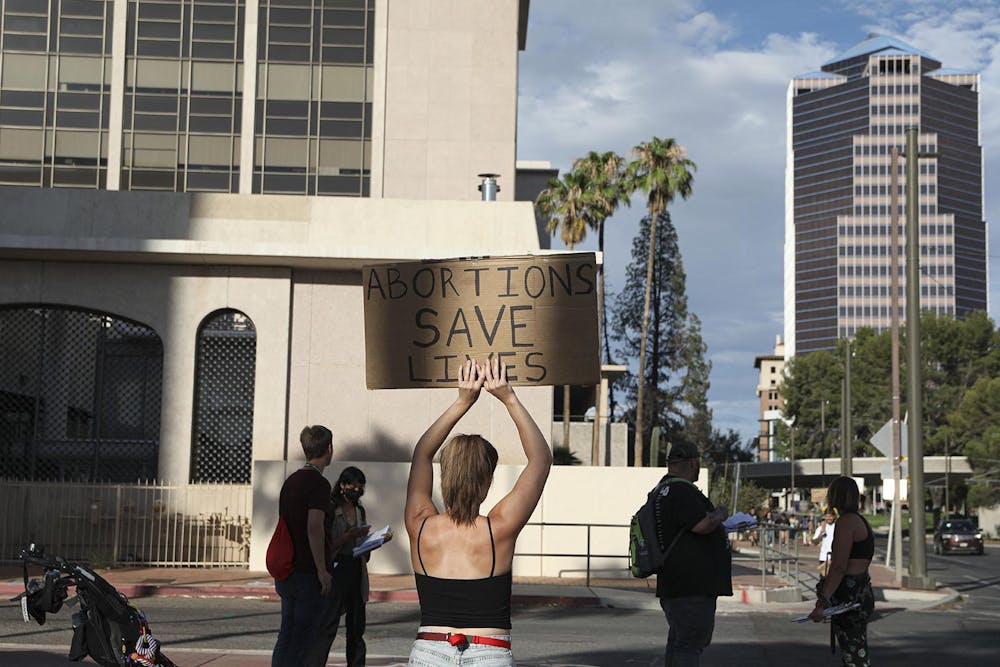Since the 2022 Dobbs v. Jackson Women’s Health Organization federal Supreme Court decision, the abortion debate has heightened. Arizona's new abortion ban, Planned Parenthood Arizona v. Mayes, recently passed by their Supreme Court, upholds an 1864 law stating that abortion is banned unless the mother’s life is in extreme danger.
If doctors in Arizona provide an abortion outside of these parameters, they could face consequences as severe as prison. If a woman were raped or assaulted, she would not be able to have an abortion in any capacity. If a woman were unaware she was pregnant, she would also have no chance to get an abortion, as the ban does not allow enough time.
Regardless of the specific situation, abortion should still be a woman’s own choice, and with this near-total ban, it is not. This deeply important choice is now made by politicians and lawmakers instead of the people it affects the most.
Political implications from this case are far-reaching and likely to have a significant impact on the November elections. While former President Trump is on the record saying this Arizona law has gone too far, many other prominent Republicans have come out in support of the Arizona ban, creating a significant ideological divide within the typically anti-abortion party. Prominent Arizona Republican operative Max Fose put it into perspective well, saying: “Nine percent of the electorate is Republican swing voters. That represents 234,000 people. They just slummed them over to Biden's corner.”
Because of Arizona’s political standing as a swing state, passing such controversial legislation may divide the state even more. Moderates who were torn between Trump and Biden may now shift leftward because of this newly discovered law.
Political rivals and staunch Republicans are now forced to oppose the abortion restrictions they want due to extremism. Republicans are likely well aware that President Biden won Arizona with a slim margin of less than 11,000 votes in 2020. They know that ensuring abortion rights in the Arizona Constitution could very well be on the ballot. Republicans in Arizona even said they are willing to reinstate the 15-week ban instead of the 1864 law. They are willing to move around party lines. The election really comes down to the unaffiliated voters in swing states, and whatever is on the ballot as a hot topic, like abortion, will drive their vote.
How will this affect other states? States with rigid anti-abortion laws, like Alabama, are unlikely to be affected politically by this Arizona near-total ban. Alabama is solidly Republican, and Trump will come out on top regardless of ruling on the abortion issue. Other Republican states could also follow in Arizona’s footsteps, but the risk is very high. Florida’s recent law to ban abortion after six weeks also plays a role in adding abortion to the ballot for this upcoming election. While Florida is not currently a true swing state, their recent law, coupled with Arizona’s, helps to put abortion at the center point of the election.
Swing states may also begin looking at their own legislation for abortion. Wisconsin, a political battleground for the election, currently has an abortion ban at 22 weeks, with 57 percent of voters opposing the Dobbs decision. Perhaps just seeing how extreme Arizona became, seemingly overnight, will spur Wisconsin moderates to vote Democratic.
Here in North Carolina, the abortion ban lies at 12 weeks. North Carolina is often classified as a "purple" state politically, and this new legislation passed by the conservative Arizona Supreme Court could lead North Carolina to flip to blue for the 2024 election — even despite a Republican supermajority in the N.C. General Assembly.



